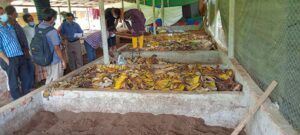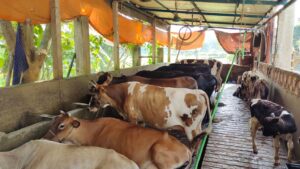Scientists at the Animal Resources Research Institute say they are claiming success in the technology of giving birth to two calves a year instead of one. Senior scientific officer of the Institute, Gautam Kumar Dev told the media that scientists hope that if the project of two calves of good quality cows in Bangladesh is successful in the field, it will be possible to further improve the quality of life of cattle and people. Dr. Gautam Kumar Dev said, this technology is new in Bangladesh. After initial success we are working to implement it at the field level. If successful, it will undoubtedly have a huge impact on the country’s cattle resources. The technology is called in vitro embryo production or IVP. However some people also call it IVA.
He said that the ovum are collected from the cows that give more milk and taken to the laboratory. There the eggs are matured and fertilized. As a result, two embryos are transplanted into the midwife’s cow from the laboratory where the fetus is born. After that, if the cow becomes pregnant, the baby will continue to grow in twos.
“Initially successful, we are now selecting good quality animals and egg collection will be done from these live animals,” he said. We hope it succeeds on the ground and we can spread it later.
He says it will be possible to conceive many cows with the ovum of a healthy and good quality cow. Bangladeshpedia, the national encyclopedia of Bangladesh, states that the number of cows in the country is about two and a half crore. Bangladesh is self-sufficient in the global index of cattle. Last year, cattle, buffalo, sheep and goat combinedly – Bangladesh was the ranked twelfth in the world




